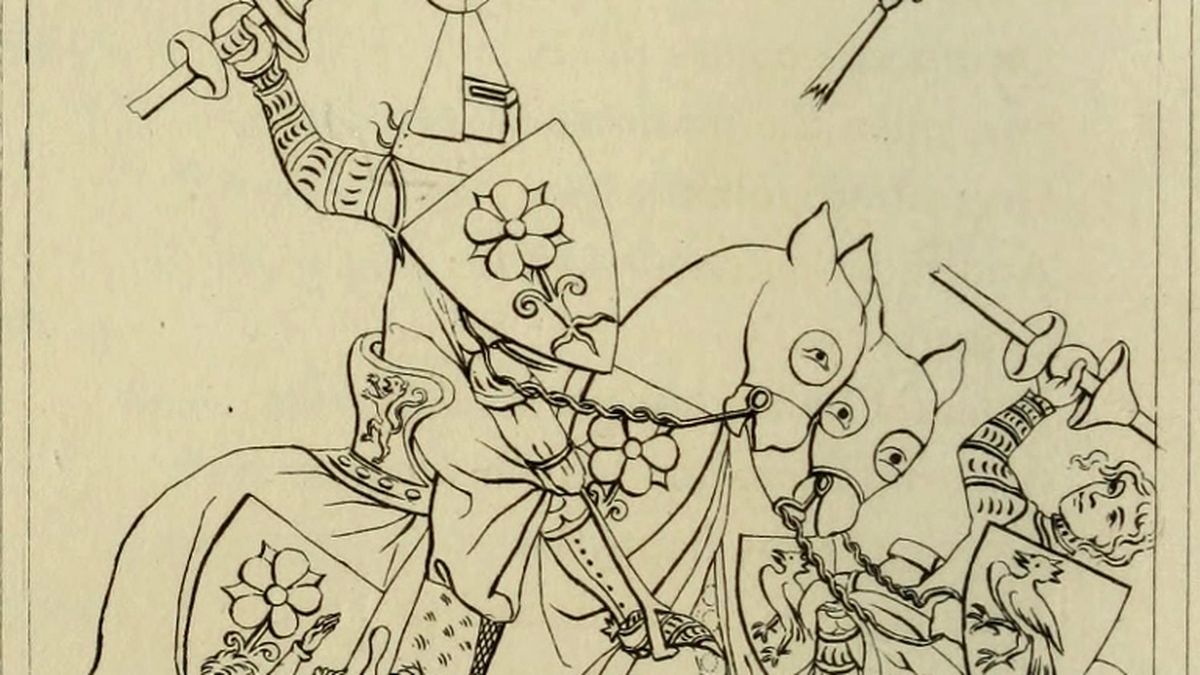 Illustration picture | ©Public domain
Illustration picture | ©Public domainThe bugging troubadour
A knight in love, a satirical poet… In his Divine Comedy, Dante represented Bertran as a troublemaker, condemned to wander with his head in his hand “as a lantern”: “You should know I’m Bertran de Born, the one who gave bad advices to the king…”
Bertrand knew how to write poems, he knew how to sing to pretty ladies: “Kind and pretty, with blond hair, ruby complexion, white body like a hawthorn flower, mellow elbow with solid breast and spine like a rabbit.”
But above all, Bertran loved to make cutting remarks: he bugged Constantin, his brother. Then, Eleanor of Aquitaine and Henri II’s sons: Henri II Plantagenet, nicknamed “Rassa”, count Geoffroy of Brittany “Mariner”, Richard Lionheart “Yes and No”…
Bertran the warrior also sang the war’s brutality! “And I’m happy when I see knights and armoured horses… I like when soldiers frightened people and cattle. I like to see castles sieges, with broken ramparts, to see the army surrounding the ditches…”
A poet, Genets and a Lion
But Bertran wasn’t the only lord of Hautefort. He shared the land with his brother Constantin.
They were at war: Constantin became allied with the English Henri II Plantagenet and his son Richard Lionheart. Bertrand became allied with Henri II’s elder son, Henri.
Maybe because Constantin was the Plantagenet’s little protégé? Anyway in 1182, Constantin was expelled from Hautefort by his brother. Damned, be send packing! And now, the young Henri died prematurely…
The beginning of big problems: one year later, Richard Lion heart besieged the castle and took Bertran prisoner, but this one was set free by king Henri II, who also gave him his castle back… why?
Because he wrote a beautiful lament for his dead son… In 1184, Bertrand became the only lord of Hautefort.
Constantin was finally expelled: he would abandon his name of Born and take Lastours one instead.
In 1194, Bertran retired in Dalon abbey: the warrior became a monk! He died there, far away from war, blood and men’s madness…
